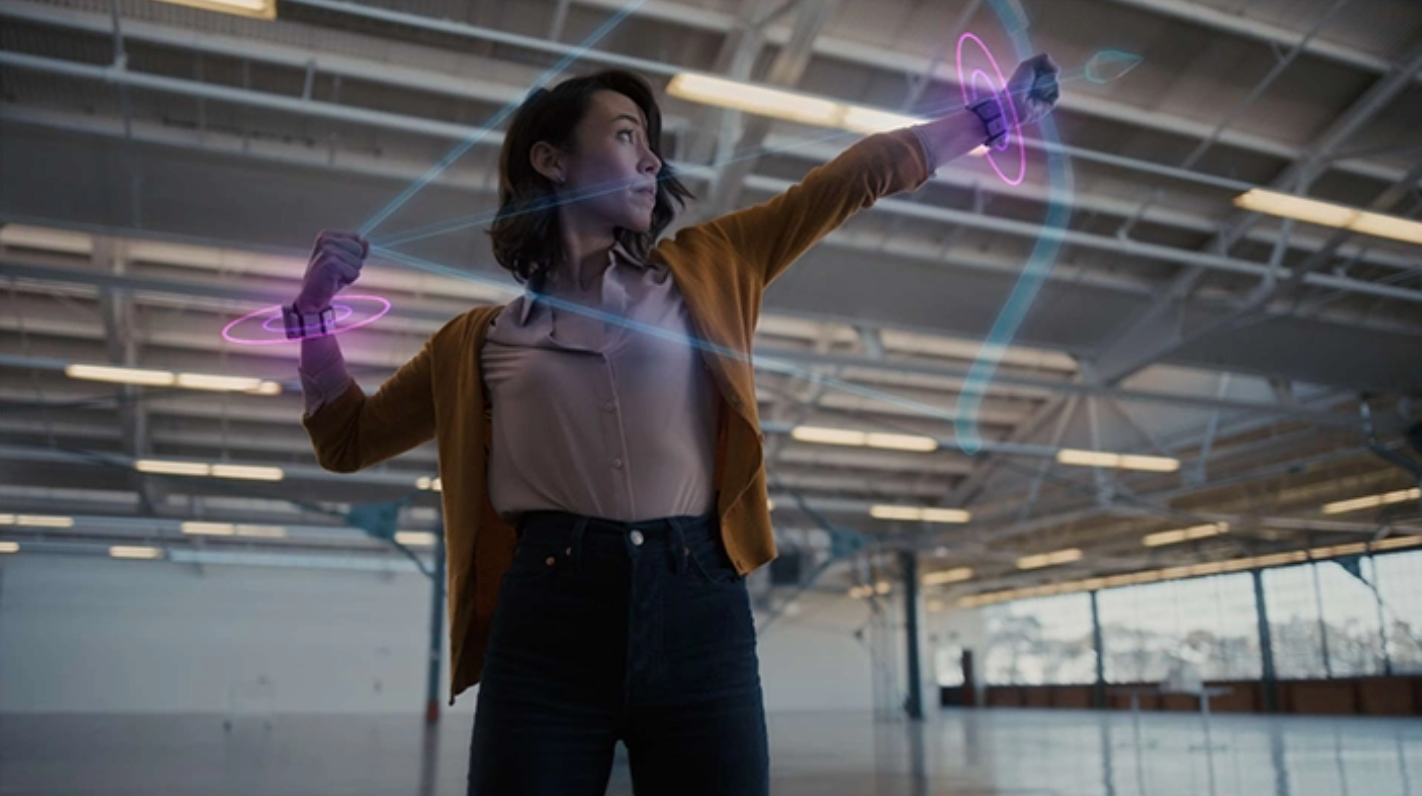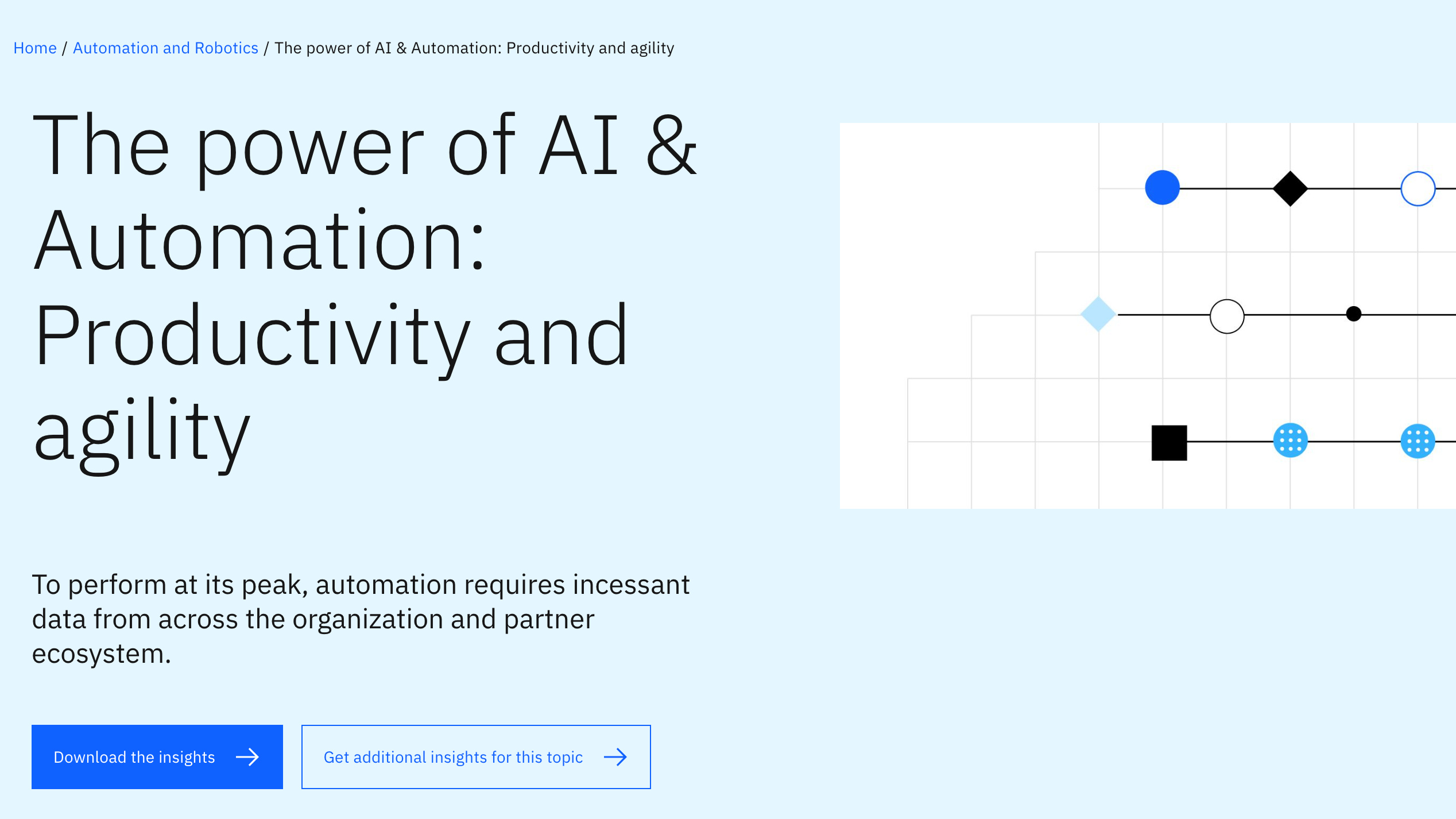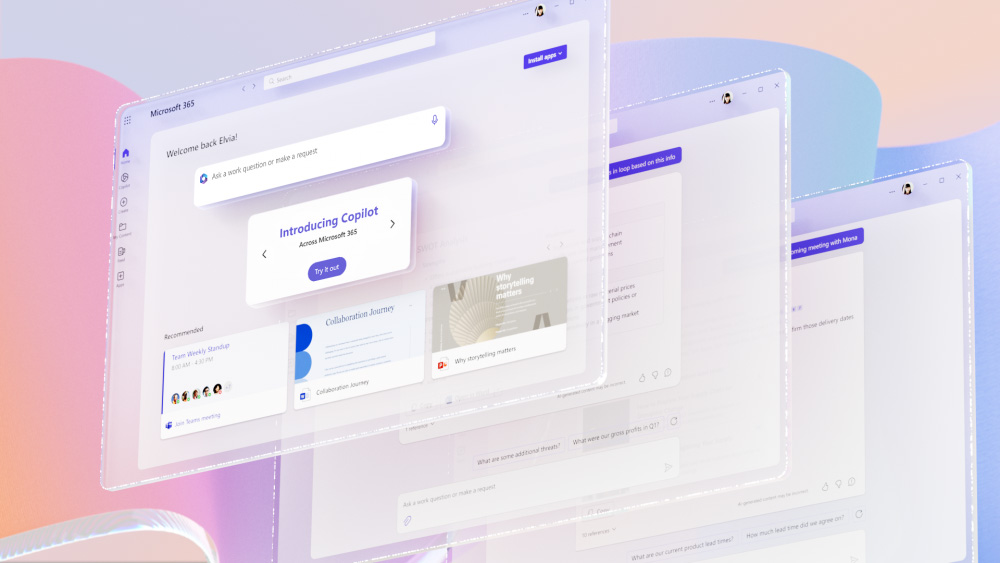Facebook reveals wrist-based hardware for augmented reality
The social network is working on a wearable prototype that uses haptic technology


Facebook has unveiled a prototype for a wearable device that can be used as a control for augmented reality systems.
The device is still in development at Facebook's Reality Labs (FRL) - formally Oculus Research - and is part of its work to find alternative methods of 'human-computer interaction' (HCI).
The software used by the prototype is described by Facebook as "wrist-based input combined with usable but limited contextualised AI". It's a form of haptic technology where sensors measure electrical motor nerve signals that run up the wrist to the fingers. The device looks like a very bulky watch, presumably as it is housing lots of these sensors.
The idea is to develop an interface for augmented reality that doesn't involve touchscreens or physical keyboards, allowing users to better interact with and control the virtual layers created by a device.
"The future of HCI demands an exceptionally easy-to-use, reliable, and private interface that lets us remain completely present in the real world at all times," the company said in a blog post. "That interface will require many innovations in order to become the primary way we interact with the digital world."
The software has two critical elements that the FRL team is still developing. The first is 'contextually-aware AI', which is used to translate the commands and actions of a user based on the situation or environment they are in. The second is technology that allows for effortless communication with a system - this is an approach Facebook calls 'ultra-low-friction input'.
Facebook's chief technology officer, Mike Schroepfer, said the prototype has "amazing potential" for making devices more accessible. Schroepfer also shared two videos of the technology in action, with one highlighting both its 'low-friction input' and its contextual AI with a virtual keyboard.
Get the ITPro daily newsletter
Sign up today and you will receive a free copy of our Future Focus 2025 report - the leading guidance on AI, cybersecurity and other IT challenges as per 700+ senior executives
The Hasso Plattner Institut (HPI) in Berlin has also conducted research into haptic technology for virtual and augmented reality. The institute developed a prototype in 2018 for Microsoft's HoloLens that integrated haptic force feedback by using electrical muscle stimulation.
Bobby Hellard is ITPro's Reviews Editor and has worked on CloudPro and ChannelPro since 2018. In his time at ITPro, Bobby has covered stories for all the major technology companies, such as Apple, Microsoft, Amazon and Facebook, and regularly attends industry-leading events such as AWS Re:Invent and Google Cloud Next.
Bobby mainly covers hardware reviews, but you will also recognize him as the face of many of our video reviews of laptops and smartphones.
-
 Should AI PCs be part of your next hardware refresh?
Should AI PCs be part of your next hardware refresh?AI PCs are fast becoming a business staple and a surefire way to future-proof your business
By Bobby Hellard
-
 Westcon-Comstor and Vectra AI launch brace of new channel initiatives
Westcon-Comstor and Vectra AI launch brace of new channel initiativesNews Westcon-Comstor and Vectra AI have announced the launch of two new channel growth initiatives focused on the managed security service provider (MSSP) space and AWS Marketplace.
By Daniel Todd
-
 How to grow your business with smarter decisions
How to grow your business with smarter decisionsWhitepaper Introducing changes that generate business growth in the face of economic uncertainty for a stronger, more cohesive future
By ITPro
-
 The power of AI & automation: Productivity and agility
The power of AI & automation: Productivity and agilitywhitepaper To perform at its peak, automation requires incessant data from across the organization and partner ecosystem
By ITPro
-
 Operational efficiency and customer experience: Insights and intelligence for your IT strategy
Operational efficiency and customer experience: Insights and intelligence for your IT strategyWhitepaper Insights from IT leaders on processes and technology, with a focus on customer experience, operational efficiency, and digital transformation
By ITPro
-
 Digitization solves manufacturing’s five toughest challenges
Digitization solves manufacturing’s five toughest challengesWhitepaper Discover the technology trends that overcome manufacturing’s challenges, from cyber resilience to breaking free from legacy technology
By ITPro
-
 Slack says automation can save every employee a month of work per year
Slack says automation can save every employee a month of work per yearNews Research from Slack found that workers believe generative AI tools will revolutionize productivity
By Ross Kelly
-
 Critical capabilities for full Life Cycle API Management
Critical capabilities for full Life Cycle API ManagementWhitepaper Software engineering leaders should use this research to assess and compare the capabilities of 17 products across five use cases.
By ITPro
-
 Magic Quadrant for Full Life Cycle API Management
Magic Quadrant for Full Life Cycle API ManagementWhitepaper Assessing vendors in the fast-evolving full life cycle API management market to help software engineering leaders pick the right one
By ITPro
-
 Microsoft 365 Copilot aims to transform meeting prep and productivity
Microsoft 365 Copilot aims to transform meeting prep and productivityNews Context is king for Microsoft's new productivity AI, which can draw together data from across Microsoft 365 to eliminate prep time
By Rory Bathgate